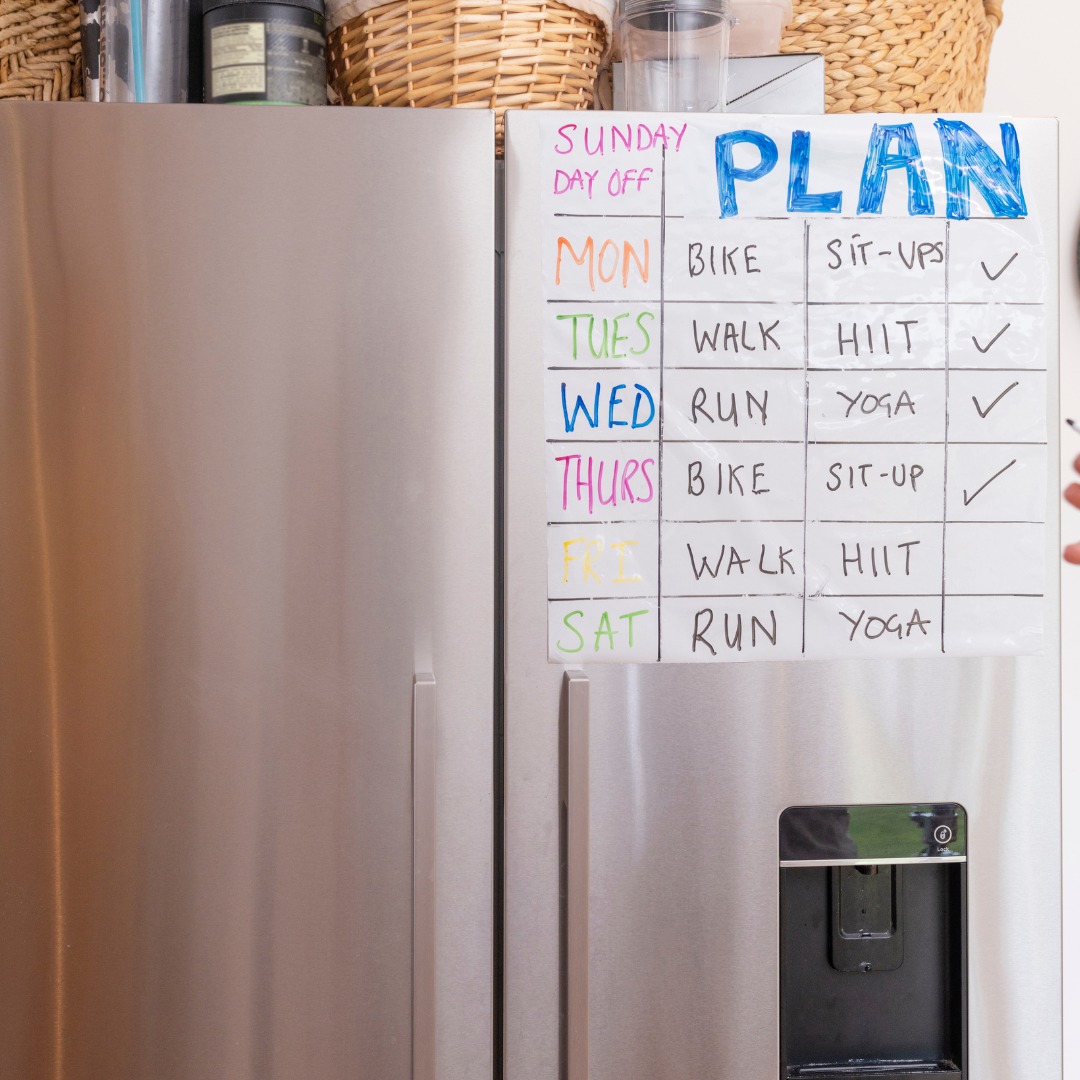Disclosure:
Thank you for reading this post, don't forget to subscribe!
Some of the links on this website are affiliate links. This means that if you click on the link and make a purchase, we may receive a small commission at no extra cost to you. Your support helps us keep the site running.Learn more on my Privacy Policy and Affiliate Disclosure page. Thank you for your support!
Everyone experiences ups and downs in their emotional well-being, but science shows we can actively improve our mood and mindset through simple daily practices. Research demonstrates that specific techniques can help us feel more positive, motivated, and resilient, regardless of external circumstances.
This guide presents seven practical techniques for boosting mood and mindset that you can start using today. We’ll explore how morning routines, physical activity, social connections, and mindset shifts work together to create lasting positive changes. Each method is backed by research and designed to fit easily into your daily life.
Establish a Positive Morning Routine
Starting your day with purpose can transform your entire outlook. Research shows that a consistent morning routine significantly impacts mental health, setting the foundation for improved mood and mindset throughout the day.
Wake up early
The early morning hours offer a unique opportunity for personal growth and mental clarity. Studies indicate that early risers are less likely to experience depression and anxiety, partly due to increased exposure to natural daylight—a powerful mood enhancer. To make the transition to early rising successful:
- Start gradually by adjusting your wake time in 15-minute increments
- Open curtains immediately for natural light exposure
- Stay consistent with your wake time, even on weekends
- Prepare for morning success the night before
- Give yourself time to properly wake up without rushing
Set intentions for the day
Setting daily intentions is more than just planning—it’s a commitment to your desired state of being. This practice helps you stay connected to your goals while maintaining mindfulness throughout the day. Your intention might focus on how you want to feel, what you want to accomplish, or how you wish to interact with others.
Consider framing your intentions with statements like:
- “Today, I intend to stay focused and avoid distractions”
- “I choose to approach challenges with patience and creativity”
- “I commit to being present in my interactions”
Remember that intentions differ from goals—they’re about the journey rather than the destination. Take five minutes each morning to write down your daily intention, connecting it to your broader life purpose.
Practice gratitude
Incorporating gratitude into your morning routine can fundamentally shift your perspective and boost your mood. Research demonstrates that regular gratitude practice leads to lower stress levels and increased contentment. Start by keeping a gratitude journal beside your bed and writing down three to five things you’re thankful for each morning.
The key to effective gratitude practice is consistency and authenticity. Focus on both significant and small blessings—from supportive relationships to simple pleasures like your morning coffee. This practice trains your brain to become more receptive to positive experiences throughout the day.
By dedicating time to these morning practices, you create a strong foundation for boosting mood and mindset. The routine becomes an investment in your emotional wellbeing, setting a positive tone that influences your entire day.
Check out Mayo Clinic article on “Gratitude and Well-Being: How Practicing Gratitude Improves Your Mental Health”-the impact of gratitude on mental health.
Engage in Physical Activity and Mindfulness

Physical activity and mindfulness are powerful tools for transforming your mental state. Research shows that combining movement with mental awareness creates a synergistic effect in boosting mood and mindset.
Exercise regularly
Regular physical activity does more than just improve your physical health – it’s a proven mood enhancer. Here’s how exercise benefits your mental wellbeing:
- Releases endorphins and other mood-boosting chemicals
- Reduces stress and anxiety levels
- Improves sleep quality and duration
- Enhances focus and mental clarity
- Increases self-esteem and confidence
Even modest amounts of exercise can make a significant difference. Aim for 30 minutes of moderate activity five times a week. This could be brisk walking, swimming, or cycling – choose activities you enjoy to make the habit stick.
Find out the scientific evidence on how exercise can boost mood and improve mindset, The Healthline’s guide on “Benefits of Physical Activity for Mental Health”.
Try yoga or meditation
Yoga and meditation offer unique benefits for mental wellness, combining physical movement with mindful awareness. These practices help activate your body’s relaxation response, reducing stress and promoting emotional balance.
For beginners, try these simple mindfulness techniques:
- Focus on your breath for 5-10 minutes daily
- Practice gentle stretching while maintaining awareness
- Start with guided meditations using apps or videos
- Join a beginner-friendly yoga class
Studies show that consistent practice can increase GABA levels in the brain, improving mood and reducing anxiety. Mindfulness-Based Stress Reduction (MBSR) programs have proven particularly effective, showing results comparable to traditional anxiety medications but without side effects.
If you want to Learn more about the benefits of mindfulness as a mood-boosting technique read our post on “Daily Mindfulness Practices for a Calmer Life”.
Spend time outdoors
Nature exposure adds another dimension to physical activity and mindfulness practices. Research indicates that exercising outdoors provides greater mental health benefits than indoor activities. Just five minutes of “green exercise” can significantly improve self-esteem and mood.
The natural environment helps restore mental energy and improve focus through what scientists call “attention restoration.” When combined with physical activity, outdoor time becomes even more powerful for boosting mood and mindset. Try activities like hiking, gardening, or simply walking in a park.
Remember that consistency matters more than intensity. Start with activities that feel manageable and gradually increase duration and intensity as your body adapts. The key is finding a sustainable routine that you can maintain long-term.
read next:
Nurture Social Connections
Human connections form the cornerstone of emotional wellbeing, with research consistently showing that strong social bonds are essential for boosting mood and mindset. Studies reveal that people with robust social networks experience better mental health outcomes and increased resilience during challenging times.
Stay connected with loved ones
Building and maintaining strong relationships requires intentional effort, but the rewards are worth it. Regular social interaction helps protect against serious illness and creates feelings of belonging and value. Make connection a priority by:
- Scheduling regular check-ins with family and friends
- Using technology thoughtfully to maintain long-distance relationships
- Creating meaningful traditions and shared experiences
- Making time for face-to-face interactions
- Actively listening and showing genuine interest in others’ lives
Join support groups or communities
Support groups offer a unique opportunity to connect with others who understand your experiences firsthand. These gatherings provide a safe space where you can share challenges, celebrate victories, and learn from others’ experiences. Research shows that participating in support groups can significantly improve mental health outcomes by:
- Reducing feelings of isolation and loneliness
- Providing practical coping strategies
- Offering emotional validation and understanding
- Creating opportunities for meaningful friendships
- Improving self-care practices
- Building resilience through shared experiences
When seeking a support group, consider both in-person and online options. Many organizations offer specialized groups for specific challenges, ensuring you’ll find others who truly understand your situation. Remember that it’s normal to feel nervous at first – most members report feeling the same way when they started.
Practice acts of kindness
Performing acts of kindness isn’t just beneficial for recipients – it’s a powerful way of boosting your own mood and mindset. Research indicates that helping others can increase happiness, reduce stress, and improve self-esteem. Simple ways to practice kindness include:
- Send an unexpected thank-you note to someone who made a difference in your life
- Offer practical help to elderly neighbors with shopping or household tasks
- Check in on friends going through difficult times
- Share your expertise with colleagues who might benefit
- Volunteer for community organizations
- Make time to listen to someone who needs support
The key to making these connections meaningful is consistency and authenticity. Studies show that regular social interaction, combined with genuine acts of kindness, creates a positive feedback loop that enhances both mental and physical health. Even small gestures can have significant impacts on both the giver and receiver.
Remember that social connections work as a two-way street – while you’re supporting others, you’re also building a network that will be there when you need support. This reciprocal nature of relationships creates a strong foundation for long-term emotional wellbeing and resilience.
Cultivate a Growth Mindset
Developing a growth mindset is like cultivating a garden of possibilities – it requires patience, dedication, and the right techniques for boosting mood and mindset. Research shows that our abilities aren’t fixed traits but can be developed through effort, learning, and persistence.
Challenge negative thoughts
Your internal dialog shapes your reality more than you might realize. Negative self-talk can create barriers to personal growth, but you can learn to recognize and reshape these thought patterns. Here’s a proven process to challenge negative thoughts:
- Identify the negative thought pattern
- Question its validity with evidence
- Consider alternative perspectives
- Replace with realistic, constructive thoughts
- Practice self-compassion throughout the process
Remember to treat yourself as you would a close friend – with understanding and encouragement. When you catch yourself thinking “I can’t do this,” add the powerful word “yet” to the end of that sentence. This simple addition transforms a fixed mindset statement into one of growth and possibility.
Set achievable goals

Setting the right kind of goals is crucial for maintaining motivation and building confidence. The key is to create goals that stretch your abilities while remaining within reach. Consider these proven goal-setting strategies:
- Break larger objectives into smaller, manageable steps
- Make your goals specific and measurable
- Set both short-term and long-term targets
- Focus on progress rather than perfection
- Adjust goals as needed based on experience
- Track your progress regularly
When setting goals, remember that the path to success isn’t linear. Each step forward, no matter how small, contributes to your growth. Boosting mood and mindset comes naturally when you see yourself making consistent progress toward meaningful objectives.
If you want to learn strategies for creating daily habits that support a positive mindset you must check otut MorningScape Mindset Media’s article on “Building Positive Daily Habits”.
Celebrate small wins
Small victories are the building blocks of major achievements, yet we often overlook their significance. Research shows that acknowledging these wins can significantly impact your motivation and confidence. Each small success reinforces your belief in your ability to grow and improve.
Think of small wins as momentum builders. When you complete a challenging task, take a moment to recognize your achievement. This could be as simple as mastering a new skill at work, maintaining a healthy habit for a week, or overcoming a minor fear. These victories, while seemingly modest, create a positive feedback loop that enhances your resilience and determination.
Make celebration a regular practice by: Creating a “wins journal” to document daily achievements Sharing successes with supportive friends or family Taking time to reflect on your progress Rewarding yourself in small but meaningful ways
The power of a growth mindset lies in understanding that your abilities can be developed through dedication and hard work. Your brain is like a muscle – it grows stronger with practice. When facing challenges, remind yourself that struggle is not a sign of failure but an opportunity for growth. This perspective shift is fundamental to boosting mood and mindset.
explore more:
Remember that developing a growth mindset is itself a journey. You might encounter setbacks or moments of doubt, but these are natural parts of the learning process. Each challenge you face is an opportunity to strengthen your resilience and expand your capabilities. By consistently practicing these techniques – challenging negative thoughts, setting achievable goals, and celebrating small wins – you create a foundation for lasting personal growth and improved mental well-being.
Conclusion
These seven proven techniques work together to create a comprehensive approach to emotional wellbeing. Morning routines establish daily momentum, while physical activity and mindfulness practices strengthen both body and mind. Social connections provide essential support and meaning, as a growth mindset transforms challenges into opportunities for development. Research demonstrates that these methods complement each other, creating a powerful foundation for lasting positive change.
Success in mood and mindset improvement comes from consistent, small actions rather than dramatic changes. Each technique offers flexibility for personal adaptation, making them accessible regardless of lifestyle or circumstances. Mental wellbeing responds best to steady, sustainable practices that build upon each other over time. These evidence-based strategies empower anyone to take active control of their emotional health, leading to greater resilience and life satisfaction.
more about:
HEALTH / WELLNESS / FITNESS / NUTRITION
share this article














